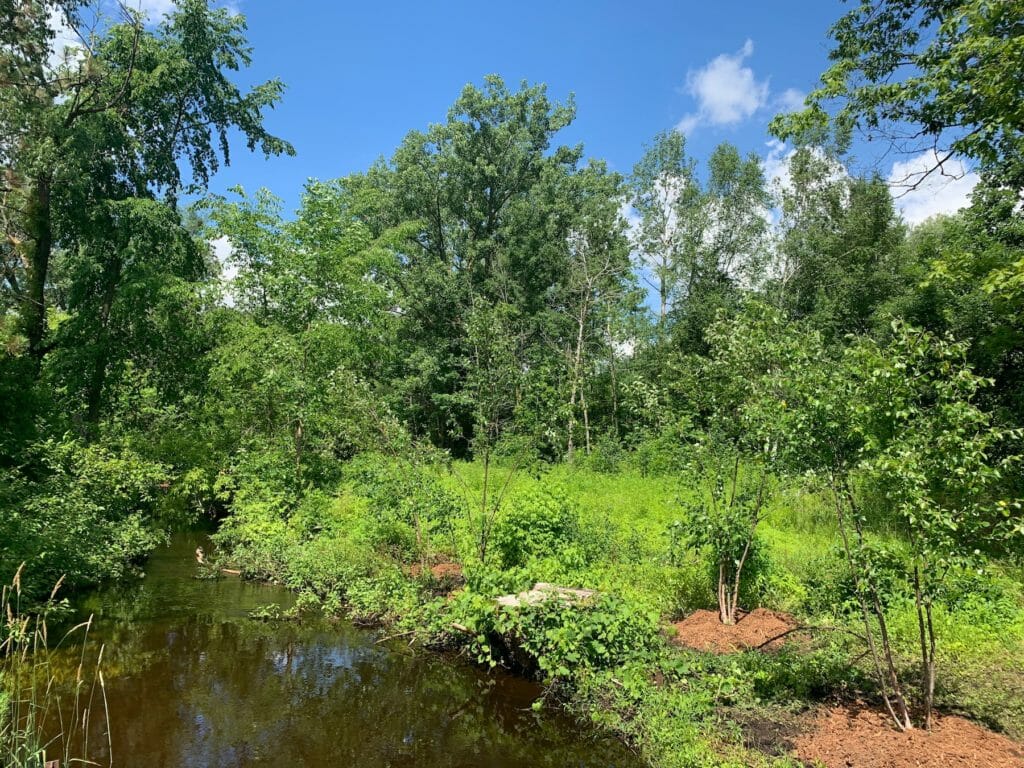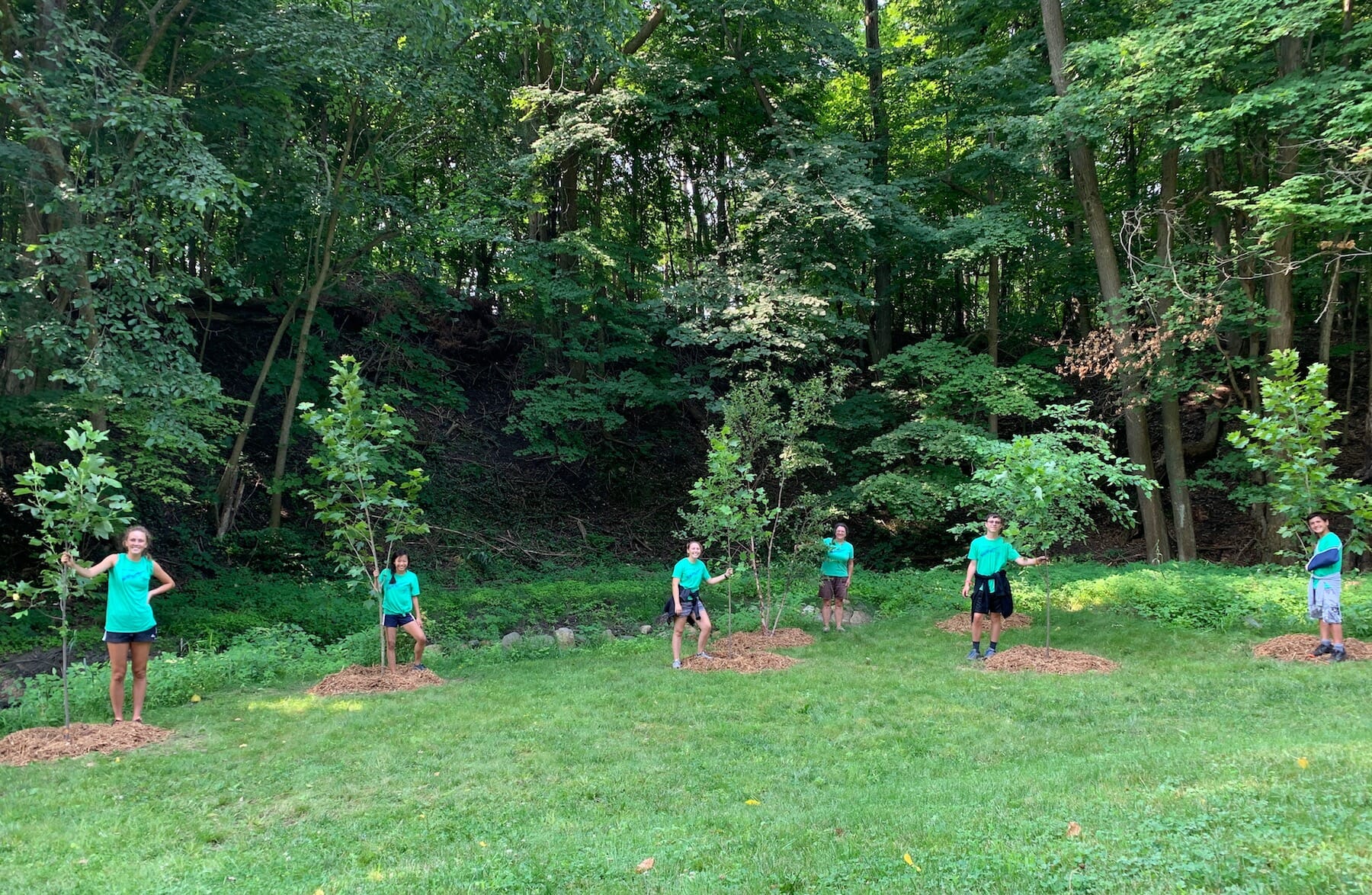Trout Unlimited has received funding from the U.S. Department of Agriculture, Forest Service through the Great Lakes Restoration Initiative to plant nearly 17,000 trees along coldwater streams in Michigan.
The project, “Reducing Runoff in the Rogue River Watershed,” aims to address stormwater runoff that pollutes, erodes and warms the important West Michigan trout fishery by planting trees at six critical sites throughout the watershed.
The sites, located in Rockford, Cedar Springs, Sparta, and Plainfield Township are both public and private and represent a diverse network of community partners, stakeholders, agencies and residents. Trout Unlimited kicked off the project this summer by planting trees at two of six total sites, all along tributaries to the Rogue River.

The first site was at a public green space along Cedar Creek in downtown Cedar Springs. The Trout Unlimited and Plaster Creek Stewards Green Team (top photo), a high school workforce that learns about and implements watershed restoration projects, worked alongside many volunteers from the community.
With help from the Cedar Springs Community Building Development Team, the Green Team, and great volunteers, TU restored 1/3 acre along the important coldwater tributary with native trees.
The second site was a private property along Blakeslee Creek (top photo) in Rockford.
Though small, Blakeslee Creek has big impacts on the Rogue River. It suffers from hydrologic issues from upstream developments and can lead to increased sediment in the Rogue River when it receives high flows. To help reduce the flashiness and help shade the coldwater stream, the Green Team planted native river birch, tulip poplar and sycamore trees.
Planting trees along streams has a variety of important benefits to the watershed. Trees will shade a stream, protecting it from warming temperatures in the summer. They drop leaves and woody debris, which create habitat for fish and other wildlife, and they help communities become resilient to climate change impacts. Most impressively, they have the ability to soak up and filter runoff to reduce the amount entering and polluting a stream.
At maturity, a typical medium-sized tree can intercept as much as 2,380 gallons of rainfall per year. In the first five years alone, the 16,823 trees planted through this project will result in 1.5 million gallons of water filtered.
The remaining four sites on the Rogue River, Cedar Creek and Nash Creek are much larger and will be planted with tree seedlings in the spring. Trout Unlimited will be hiring a seasonal crew as well as enlisting the help of volunteers for the remaining plantings.
If you are interested in more information about applying for the work crew or volunteering, please contact Jamie Vaughan at jvaughan@tu.org.
Trout Unlimited hopes that through launching their tree planting initiative, hosting landowner workshops, and providing free site visits and resources for private forest landowners, they will create forest stewards who recognize the public benefit of their land and have the confidence to manage and protect the woodlands that are so critical to the health of the Rogue River watershed.
Trout Unlimited is excited to continue this project and is thankful to the U.S. Forest Service for its support as well as for the Great Lakes Restoration Initiative, which makes this project possible.



